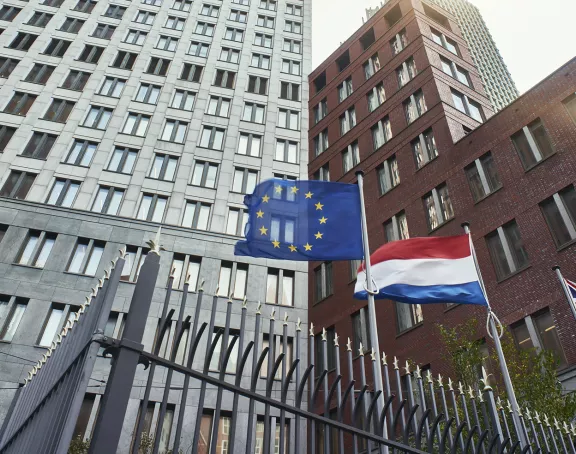Netherlands lags behind in implementing amended ETS Directive (Update 2 April 2024)
The ETS Directive was amended in May 2023. Member States had until 31 January 2023 to implement the provisions of the amended ETS Directive. The Netherlands failed to meet that implementation deadline. The European Commission sent the Netherlands a formal notice and gave it a further two months in which to implement the legislative changes. The bill is now before the Upper House.
Update 2 April 2024: The bill has now been passed and entered into force.
Directive 2003/87/EC (the ETS Directive) was amended in May 2023 due to the expansion of the European Emissions Trading Scheme (ETS). To implement these amendments, a bill was submitted to the Lower House on 5 September 2023. We previously wrote a blog on the changes to the ETS and the proposed bill. The proposed bill envisages three major changes: from 2024 shipping companies will also have to surrender emission allowances, from 2024 airlines will be allocated fewer and fewer free emission allowances, and from 2027 emission allowances will have to be surrendered for the supply of fuel to the built environment, road transport and some other sectors.
Member States had until 31 January 2023 to implement the provisions of the amended ETS Directive. Despite a letter from Minister Jetten (Climate and Energy) asking the Lower House to finalise the bill before the election recess, this implementation deadline was not met. On 16 January 2024, the bill was passed in the Lower House. The next day, Minister Jetten wrote a letter to the Upper House requesting early consideration of the bill. The plenary session in the Upper House will take place on 27 February 2024.
The European Commission (the Commission) has served the Netherlands with a letter of formal notice due to the expiry of the deadline. The Netherlands has two months in which to respond to the letter of formal notice and to implement the legislative changes. If the Netherlands fails to implement the legislative changes, the Commission may commence formal infringement proceedings and decide to issue a reasoned opinion. The Netherlands is not alone: according to the Commission, so far 26 Member States have not yet fully transposed the amendments to the ETS Directive or notified the Commission thereof.
The fact that the ETS Directive has not yet been transposed into national law does not mean that the changes to the ETS as a whole have not yet entered into force. Some of the changes to the system are contained in European regulations, which have direct effect and do not require transposition. S We refer to our earlier blog for an overview of the relevant regulations. However, the obligation to surrender allowances, the obligation to have a greenhouse gas emissions permit, the obligation to monitor emissions, and the rules on the free allocation of allowances do find their basis in the ETS Directive. As long as these provisions for the new sectors to which the ETS applies have not yet been incorporated into Chapter 16 of the Environmental Management Act (EMA), these obligations do not yet formally apply to operators of greenhouse gas installations in those sectors. Similarly, the new prohibitory provisions and bases for enforcement by the Netherlands Emissions Authority (NEa) have not yet been included in Chapter 18 of the Act.
It is of course advisable to anticipate the changes. In view of the plenary session of the Upper House scheduled for the end of February 2024, we expect that the entry into force of the legislative amendment will follow quickly.
The bill was passed by the Senate on 27 February 2024, and went into effect on 30 March 2024.



